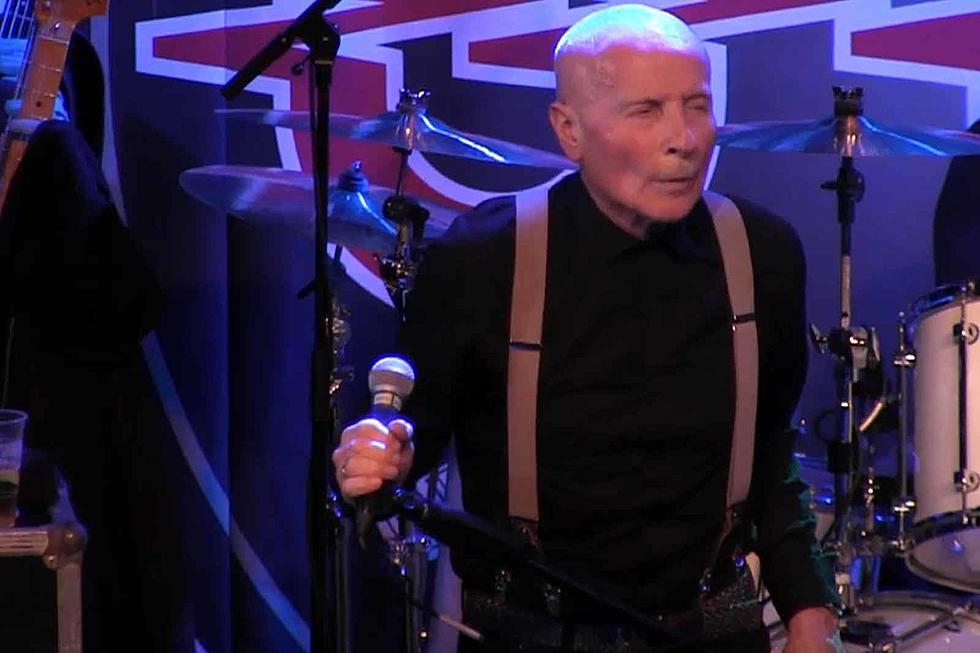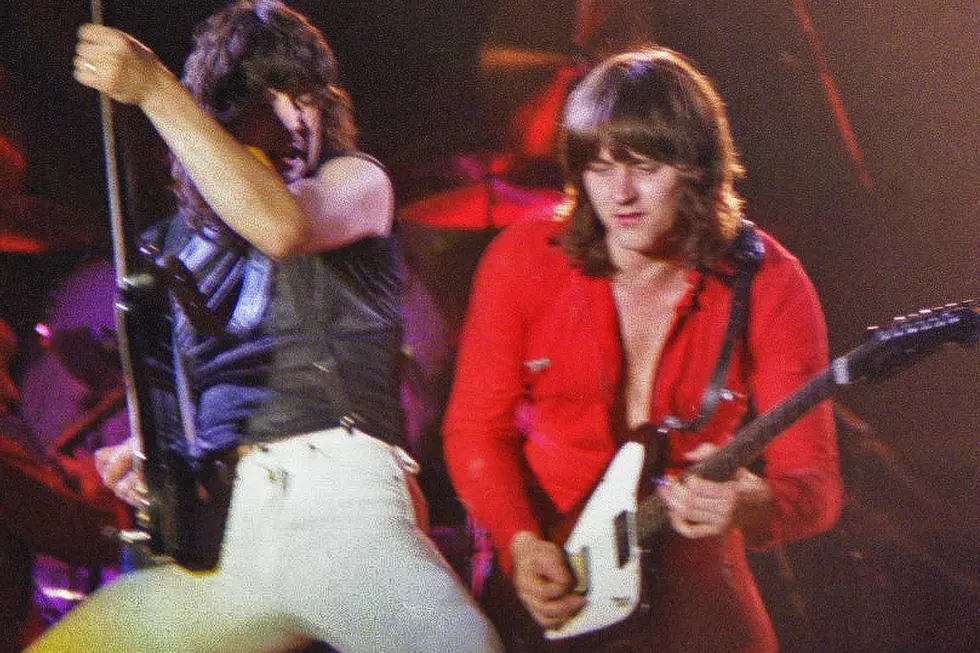
45 Years Ago: UFO Continue Their Spacey Voyage With ‘UFO 2: Flying’
Classic rock fans know UFO as one of Britain's greatest hard rock exports of the '70s, led by the spectacular talents of German guitarist Michael Schenker. But precious few recall the band's original incarnation, which was responsible for several releases prior to Schenker's arrival, including 1971's pioneering but poor-selling UFO 2: Flying.
Since forming in North London, in 1969, originally as Hocus Pocus, UFO had traced a very specific course into space-rock -- a hot commodity at the time based on the success of Pink Floyd, Hawkwind and others. But after scoring a deal with independent Beacon Records, Phil Mogg (vocals), Mick Bolton (guitar), Pete Way (bass) and Andy Parker (drums), met with nothing but indifference from U.K. critics and fans.
Their self-titled debut, released in January 1971, didn't even chart back home, but a revved-up version of Eddie Cochran's "C'Mon Everybody" (quite similar, in spirit, to Blue Cheer's raucous manhandling of the '50s rocker's "Summertime Blues") became a surprise hit in Japan, while another tune, "Boogie for George," fared well in Germany.
So when they got back into the studio, just a few months later, to start working on some new material, UFO simply doubled down on their space-rock direction for what would become their sophomore UFO 2: Flying, released in October 1971. Subtitled 'One Hour Space Rock,' the LP featured, not one, but two extended jams averaging 20 minutes in length, along with three more conventionally sized cuts -- none of which became hits.
But all of them possessed of certain merits, including the bruising hard rock of "Silver Bird" (which showcased Bolton's surprisingly earthly blues talents) and progressive aspirations of the interlocked (but by vinyl sides divided) "Prince Kajuku" and "The Coming of Prince Kajuku." As for the two extended pieces, "Star Storm" alternated ethereal vibes and echoing sound effects with loads of instrumental jamming, while the 26-minute "Flying" (one of the longest single works in rock history up to that point) added funky passages and a bigger presence from Mogg's vocals.
A bit much? You bet it was and British and American consumers let that be known by applying their well-earned cash to other releases of the era. But UFO still had their following in Japan to exploit, bestowing them with a live album before a dispirited Bolton quit the group at the start of 1972. There followed two years of silence and multiple brief replacements (future Whitesnake guitarist Bernie Marsden, Pink Fairies and Motorhead man Larry Wallis) before Schenker was plucked from the Scorpions in time for 1974's career-rebooting Phenomenon LP.
UFO's early works were quickly eclipsed by UFO's considerable success as a hard rock concern, but the unique and challenging UFO 2: Flying will always have its champions, few though they may be, to keep its memory alive down the misty decades of classic rock history.
See UFO’s ‘Force It’ and Other Nude Album Covers
More From Ultimate Classic Rock









